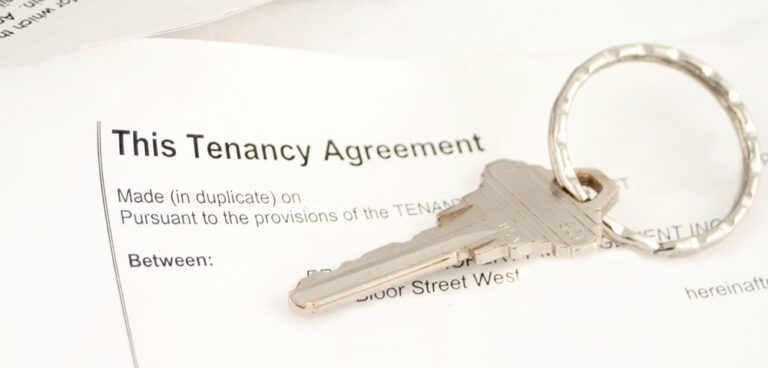The Renters’ Rights Bill is poised to introduce transformative changes to tenancy laws in England, marking the most significant overhaul in decades.
Key reforms include banning Section 21 ‘no-fault evictions’, transitioning all tenancies to periodic agreements, and implementing measures to limit rent increases, ban bidding wars, and enforce higher property standards. This comprehensive legislation aims to provide greater security and stability for the country’s 11 million private renters, enabling them to establish long-term roots in their communities.
The removal of Section 21 ‘no-fault’ evictions is a major worry for landlords. Many believe it will make regaining possession of properties more challenging, even in legitimate cases like selling a property or moving in themselves. The updated Section 8 process, requiring landlords to demonstrate specific legal grounds for eviction, is perceived as more restrictive.
Local authorities’ enforcement powers are also to be strengthened and extended, with civil penalties being increased up to £7,000 for initial or minor non-compliance and up to £40,000 for repeat offences. Rent Repayment Orders could be demanded on some of the new offences, with penalties being increased from 12 to 24 months’ rent; superior landlords and company directors could now also be liable.
However, the National Residential Landlord Association (NRLA) warns that these reforms could raise costs for landlords and letting agencies, projecting industry losses of £392 million over the next decade.
Mish Liyanage, CEO of The Mistoria Group comments: “This landmark legislation introduces sweeping changes, reshaping tenancy laws, and addressing critical areas such as tenant security, property standards, and enforcement measures.
“One of the most significant changes is the shift from fixed-term to periodic tenancies, requiring landlords to update their tenancy agreements in line with the new rules.
“The bill includes a mix of laws introducing new processes, banning outdated practices, and revamping how the market operates. With measures to extend the Decent Homes Standard and new rules on pets, landlords must ensure their properties meet these upgraded requirements.
“Staying informed about the bill’s progress is crucial. Landlords and agents need to familiarise with the bill to understand their new obligations. One of the biggest changes will be the move from fixed term to periodic tenancies. Most landlords will need to make changes to their standard tenancy agreements to reflect the new rules.
“As government guidance and implementation timelines emerge, landlords can proactively adjust to the changes, ensuring compliance and minimizing disruptions in their rental operations.”
The Bill still has many stages to get through which will include debates in the Commons and House of Lords. So, there could be changes before it receives Royal Assent. It’s also worth noting that all of this applies only to Assured Shorthold Tenancies.
Here’s an overview of the 12 key measures:
- Ending Section 21 Evictions
Tenancies will end only through tenant termination or lawful grounds via an updated Section 8 process. Tenants get 12 months’ protection initially, with landlords needing to give four months’ notice for property sale or personal use. - Switching to Periodic Tenancies
All tenancies will be periodic, removing fixed terms. Tenants can end a tenancy with two months’ notice, while landlords must use Section 8 notices. - Landlord Ombudsman
Landlords must join a Private Rented Sector Ombudsman, which will handle tenant complaints and issue binding decisions, including compensation or property improvements. - Extending Awaab’s Law
Private landlords must address hazards like damp and mould within strict timeframes or face legal action, aligning with social housing requirements. - Decent Homes Standard for Private Rentals
Minimum housing standards will extend to private rentals, empowering local authorities to enforce compliance. - Capping Rent Increases
Rents can rise only once annually via Section 13 notices, in line with market rates. Tenants can challenge unreasonable increases. Rent review clauses will be banned. - Private Rented Sector Database
Landlords must register properties on a database to enhance transparency and compliance for tenants and councils. - Tenant Pet Rights
Landlords cannot unreasonably reject pet requests. Tenants may need insurance for pet-related damages. - Banning Rental Bidding Wars
Landlords and agents must advertise a fixed rent, prohibiting bids above the listed price. - Ending Discrimination
Bans on excluding tenants on benefits or with children will be enforced, although affordability checks remain allowed. - Enhanced Local Authority Powers
Councils gain rights to inspect properties and request information, with fines up to £40,000 or prosecution for serious non-compliance. - Strengthened Rent Repayment Orders (RROs)
Maximum RRO penalties will double to cover 24 months of rent, applying to superior landlords and recurring offences.
The government have produced a set of guidance alongside the Bill, which can be found here.
Over the last 15 years, The Mistoria Group’s strategic approach has resulted in a varied portfolio encompassing more than 2,000 tenancies, including residential, student, professional HMOs, and commercial properties across the North East and West.
For more information on property sales, purchases, or joint venture opportunities, contact t: 0800 5003015 e: info@mistoriagroup.com.

